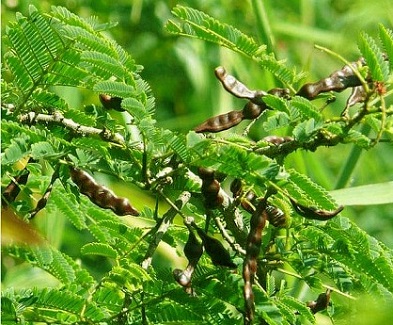Thailand Medical Researchers Explore Potential Anti-Cancer Power of Acacia Concinna
Nikhil Prasad Fact checked by:Thailand Medical News Team Nov 03, 2024 5 months, 1 week, 4 days, 5 hours, 4 minutes ago
Thailand Medical: A new study by researchers in Thailand has discovered that the Acacia concinna plant - locally known as “Sompoi” - may offer a powerful and natural approach to fighting colon cancer. The team, comprised of scientists from Srinakharinwirot University and Bangkok Thonburi University, investigated how the extract from Acacia concinna affects colon cancer cells. This
Thailand Medical News report highlights their findings, showing how the plant’s compounds encourage cell death in cancerous cells, potentially providing a new way to treat colon cancer in the future.
 Thailand Medical Researchers Explore Potential Anti-Cancer Power of Acacia Concinna
The Background of the Study
Thailand Medical Researchers Explore Potential Anti-Cancer Power of Acacia Concinna
The Background of the Study
Colon cancer, or colorectal cancer (CRC), is a common and deadly form of cancer worldwide. Often driven by genetic mutations like the KRAS mutation, CRC can be difficult to treat, with current therapies sometimes causing side effects and losing effectiveness over time. The search for new, less harmful treatments is ongoing. Thailand’s researchers focused on Acacia concinna for its traditional use in herbal medicine and its rich mix of compounds, known for their medicinal properties. Through this study, they aimed to see if Acacia concinna extract could help promote “apoptosis,” or programmed cell death, in cancer cells. Apoptosis is a crucial process in cancer treatment, as it eliminates harmful, mutated cells from the body.
Research Team and Methods
The study, led by Pornnapa Sitthisuk, Sukanda Innajak, and Ramida Watanapokasin from Srinakharinwirot University, and Watcharaporn Poorahong from Bangkok Thonburi University, examined the effects of Acacia concinna extract on HCT116 human colon cancer cells. The research involved different laboratory techniques, including cell staining, microscopic imaging, and flow cytometry, to observe changes in cancer cell behavior when exposed to the plant extract.
Key Findings: How Acacia concinna Works Against Cancer Cells
The study revealed several promising effects of Acacia concinna extract on cancer cells. In this research, scientists found that the extract decreased the growth of cancer cells and triggered apoptosis by disrupting the cell's regular functioning.
-Impact on Cell Growth and Viability: Cancer cells exposed to the Acacia concinna extract showed reduced growth compared to untreated cells. This reduction was dose-dependent, meaning the higher the concentration of the extract, the greater the reduction in cancer cell growth.
-Promotion of Apoptosis: Apoptosis is a natural process by which cells self-destruct when they are damaged or abnormal. The Acacia concinna extract activated proteins linked to apoptosis, effectively instructing cancer cells to “self-destruct.” Under a microscope, cancer cells treated with the extract showed telltale signs of apoptosis, such as cell shrinkage, chromatin condensation, and the formation of “apoptot
ic bodies,” small membrane-bound structures that signal cell breakdown.
-Disruption of Mitochondrial Function: Mitochondria, often called the “powerhouses” of cells, are essential for cell survival. The researchers observed that Acacia concinna extract disrupted mitochondrial membrane potential (MMP), a measure of mitochondrial function. When MMP is disturbed, cells are less able to produce the energy needed to survive, which can lead to cell death. This effect contributes to the apoptotic process, weakening cancer cells and making them more susceptible to self-destruction.
The Role of Reactive Oxygen Species (ROS)
One striking finding of the study was how the Acacia concinna extract elevated levels of “reactive oxygen species” (ROS) inside cancer cells. ROS are chemically reactive molecules that can cause cellular stress and damage. In excess, ROS can trigger stress in the endoplasmic reticulum (ER), an organelle involved in protein folding and cellular responses.
Increased ROS levels induced by Acacia concinna extract led to ER stress in colon cancer cells, an event that ultimately contributed to cell death. The study found a rise in the expression of specific proteins, like GRP78 and CHOP, that mark ER stress and are linked to the cell death pathway. In other words, by increasing ROS, Acacia concinna extract created an environment in which cancer cells could no longer sustain themselves.
Targeting Key Cancer Pathways: MAPK and PI3K/Akt
This study demonstrated that the Acacia concinna extract influenced several critical cellular signaling pathways that cancer cells use to grow and avoid death. The extract affected:
-MAPK Pathway: The MAPK pathway, a series of interactions between proteins that control cell functions like growth and death, was influenced by the extract. Specifically, the extract increased levels of phosphorylated (activated) proteins such as ERK1/2, p38, and c-Jun, all of which promote apoptosis in cancer cells.
-PI3K/Akt Pathway: The PI3K/Akt pathway is known to help cancer cells survive. The Acacia concinna extract reduced the activity of this pathway, inhibiting proteins such as PI3K and Akt, which are associated with cell survival. Lower activity of these proteins increased the chances of cancer cell death.
Suppressing the Wnt/β-Catenin Pathway
Another pathway impacted by Acacia concinna extract was the Wnt/β-catenin pathway, which is crucial for cell growth and often overly active in cancer cells. The extract decreased levels of β-catenin, a protein in this pathway. Without active β-catenin, cancer cells struggled to grow and multiply, further enhancing the anti-cancer effects of the extract.
Conclusion
This study presents strong evidence that Acacia concinna extract can act against colon cancer cells by inhibiting growth, promoting apoptosis, disrupting cellular energy production, and affecting multiple signaling pathways critical to cancer cell survival. With these multi-targeted actions, Acacia concinna could be a valuable addition to future cancer treatments, particularly as a natural, plant-based option with potentially fewer side effects than traditional chemotherapy. However, more research, including clinical trials, is needed to verify its safety and effectiveness in humans.
The study findings were published in the peer-reviewed journal: Nutrients.
https://www.mdpi.com/2072-6643/16/21/3764
For the latest Medical Research News, keep on logging to
Thailand Medical News.
Read Also:
https://www.thailandmedical.news/news/thailand-medical-study-finds-combined-chemotherapy-and-radiation-boost-survival-in-advanced-esophageal-cancer
https://www.thailandmedical.news/news/thailand-medical-study-unveils-betaine-s-anti-cancer-potential-in-oral-cancer
https://www.thailandmedical.news/news/thailand-medical-study-reveals-plant-extract-formula-as-potential-relief-for-long-covid
